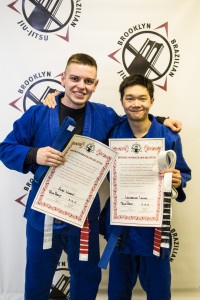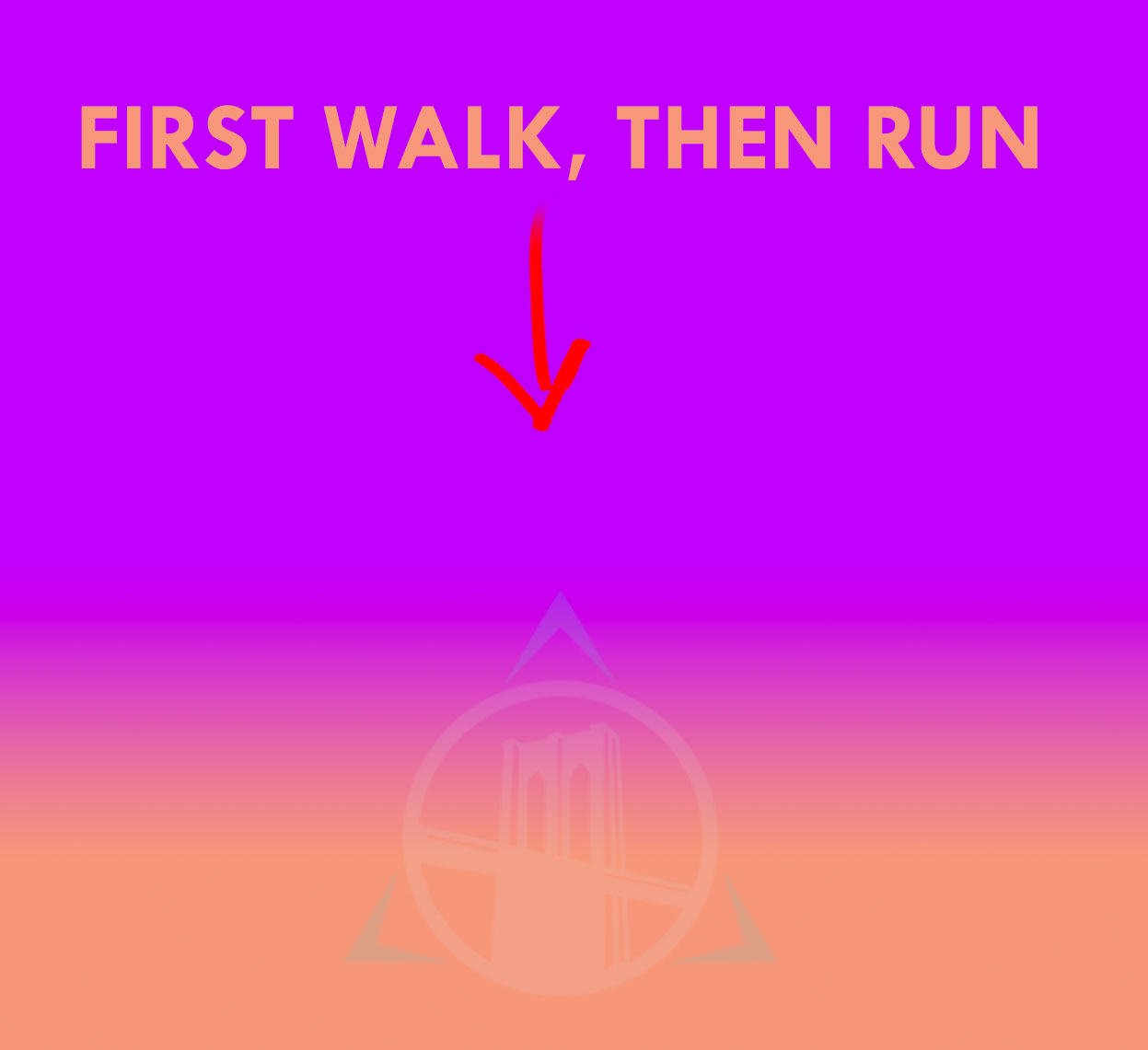Do you have kids? Even if you don’t, you’ve probably still had the opportunity to watch as they see, hear, touch, and learn things for the first time. They progress at different rates in different areas. One child walks “early” and talked “late,” whereas another may be just the opposite. In either case they have to walk before they run, no matter when they start or how quickly they progress.
It seems, though, that their inclination is to run first, which often leads to great frustration.
As practitioners, it’s easy for us to watch them and liken it to our own Martial Arts training. Most of us have had the experience where we feel like we’re just starting to run, but it comes with all those months (or years!) of walking, stumbling, misstepping, and falling down.
In fact, the students who are the most successful for the longest time are usually the ones that can learn with the “walk before you run” mindset.
 The good news for us is martial arts are designed for that slow process of incremental growth. We crawl in the beginning, and then when we can stand on our two feet confidently, we’re invited to reach a little beyond where we are. Maybe not to run, but certainly a brisk walk or a trot. It may mean working with more experienced partners, or it may mean more progressive techniques. It could be moving to a more advanced program of training.
The good news for us is martial arts are designed for that slow process of incremental growth. We crawl in the beginning, and then when we can stand on our two feet confidently, we’re invited to reach a little beyond where we are. Maybe not to run, but certainly a brisk walk or a trot. It may mean working with more experienced partners, or it may mean more progressive techniques. It could be moving to a more advanced program of training.
But that still doesn’t mean that it is time to run just yet. Next we show ourselves that we can walk consistently, and we build some confidence at the next level. Then we pick up the pace a little.
Just like with children, it’s natural for motivated, excited, progress-oriented adults to want to run right away. But the “dark side” of positive progress is often frustration. In the martial arts, as in lots of other projects we take on for our personal growth and development, short-term frustration can lead to feelings of failure, which then lead to quitting.
What’s unique about Martial Arts is that there is a built-in additive system to keep our pace of progress where we need it – just out of reach.
See, the mindset of gradual advancement gives everyone the time and place to improve. Each protocol gives us room to correct and refine our shortcomings, and as a result to help us train for life. Standing straight helps us develop a disciplined body and mind. Bowing reminds us that we are in a respectful environment. Keeping our uniforms clean maintains professionalism and displays a certain level of care.
Sometimes it’s hard to watch your kids fall down, even if its part of the process. But its our experience that tells us that they will get through it, that the frustration will give way to success. So what do we do? We hold their hands and we prop them up and we give them the confidence to keep going.
Similarly, inside the dojo we get both the structure and the example. Our instructors have been through the process of working towards their Black Belts. In this way, it’s not unlike the parent – a guiding influence who’s been there before, seeking the best for us. That’s why, at times, it seems as though they are holding our hands and propping us up. The trust and guidance gives us the confidence we need when we fall.
We want to run, so we set the stage. We trip and fall, have to get back up, then we get started again. We make corrections and adjustments, ask for help, and keep exploring. This process, which runs all the way to black belt and beyond, works naturally for each of us. There is no “early” or “late”.
With good instruction, good conditions and a curious mindset, we finally find ourselves able to run, simply and genuinely. That’s progress.
Jason’s jiu-jitsu journey began at BBJJ in 2008. He’s credited his martial arts training with improvements in everything from temperament and patience to reaching personal fitness and relationship goals.





